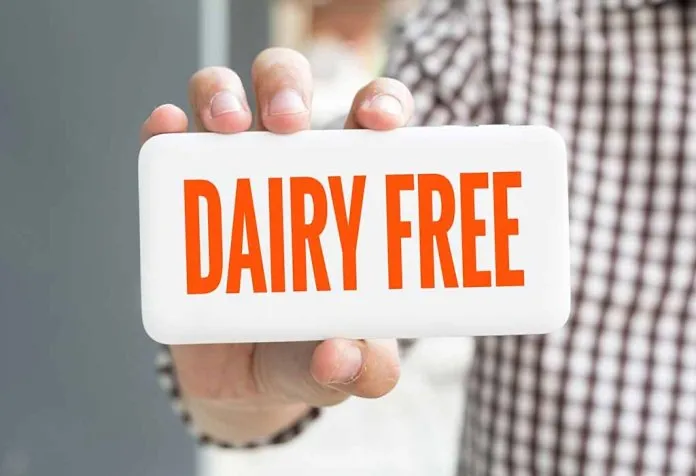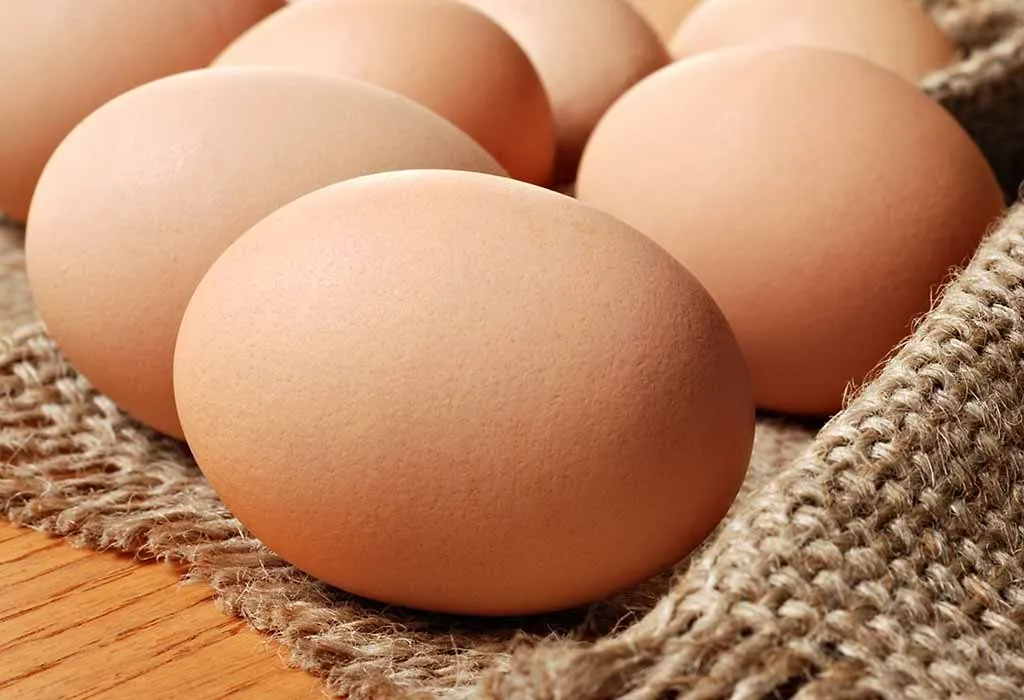Dairy Free Diet Plan for Breastfeeding Mothers

- What Is a Dairy-Free Diet?
- When Is a Dairy-free Diet Needed while Nursing?
- Tips for Going Dairy-free while Breastfeeding
It is difficult to tell whether a baby has a milk allergy or whether he is showing the symptoms of lactose intolerance. Lactose intolerance is a digestive problem, and as a mother, you should check if your baby is able to digest your milk or not. In case your baby is lactose intolerant, then it is not your milk that might be causing him trouble, but the lactose-based protein, vitamins, and nutrients from the dairy products that you consume. And if it triggers allergies then you must reconsider what you should eat while breastfeeding. You can always opt for a dairy-free diet. Do not worry, it is as healthy as the dairy diet that most doctors would prescribe you.
What Is a Dairy-Free Diet?
A dairy-free diet is the one that does not include milk and milk-based products. Dairy-related proteins or nutrients are present in almost everything. But a mother's milk is free of dairy. However, if a nursing mother consumes dairy products, then the nutrients in those products may pass to the baby via breast milk. Hence, a nursing mother should avoid consuming dairy products. Goat milk is also a dairy product, so it should be avoided too.
Soy-based products are dairy-free; they are common alternatives to dairy products for almost everything. Soy milk does not contain casein or whey, the two allergenic components present in dairy products. Soy cheese, yoghurt, and ice cream also do not contain these two components. While buying any food products, always keep an eye for ingredients such as caseinates, curds, custard, half & half, nougat, paneer, pudding, rennet, and koumiss as they are dairy products.
When Is a Dairy-free Diet Needed while Nursing?
If you notice any changes in your baby's behaviour, then you might have to consider changing your diet. Drinking cow's milk is the most common problem as it can trigger a gas problem in babies. If your baby cries incessantly or is not sleeping well, then also you must change your diet. If he has rashes, hives, eczema, itchy eyes, constipation, or diarrhoea, then your baby might be lactose intolerant. Your baby may find it difficult to digest dairy products, hence you should consider switching to a dairy-free diet.

Tips for Going Dairy-free while Breastfeeding
Staying away from dairy products does not mean that you can not have delicious foods. These tips would help you in finding healthy and tasty food options that you can always try.
- Spend a lot of time in your grocery store. Before buying any product, read the labels carefully and opt for dairy-free products only.
- Baking can be a really cool option. You can use almond milk in place of regular milk – it is tasty and healthy too! You can bake almost anything with almond milk and its rich taste would give your baked goods a special touch. Coconut milk or cream is also a good option.
- Opt for dairy-free butter rather than your regular butter or ghee. Other than this, you can also opt for peanut butter – it is healthy and can make your breakfast or a light snack really yummy.
- Eggs are another healthy option. A rich source of protein, vitamins and nutrients, an egg can be a perfect substitute for dairy products. Having one egg per day would ensure your well-being.

- Buy dairy-free breastfeeding snacks. Some brands make dairy-free snacks that are good for nursing moms who are on a dairy-free diet. Some crackers are made of sprouted grain chips, which can serve as ideal snacks.
- Consume dark chocolates in healthy amounts. However, before buying a bar of dark chocolate, check its ingredients.
- Dairy-free desserts may sound awful, but some are just too good to resist. Especially, ice creams. Almond-based ice cream, cashew ice cream, and coconut ice creams are some value-for-the-money products.
- You can consider going vegan. A vegan diet is free of any kind of animal protein. Hence, you won't have to think twice before eating anything. You can eat vegetables, nuts, cereals, and seeds.
- If you are planning to dine out while on a dairy-free diet, then go ahead. A romantic getaway with your partner or just a simple day off from the kitchen would do good to you. A little bit of outing can always cheer you up, but be careful of what you eat. Eat foods that are not made with milk or milk-based products.
- While nursing your baby, you should consume calorie-rich foods, as it is important for the healthy growth of the baby. Your diet should provide you at least 500 calories more than your normal intake. Five servings of fruits and vegetables every day should be enough for you to complement the lack of calories from your diet.
It is not that hard to go on a dairy-free diet, especially, when you know that you are doing it for your baby's health. If you feel demotivated at any point of time, remind yourself that it is temporary. Once you stop breastfeeding, you can go back to your former routine. So, enjoy the moments with your baby as much as you can and eat healthy.
Also Read:
Low Carb Diet While Breastfeeding
Foods That Increase Production of Breast Milk
Fruits to Eat and Avoid during Breastfeeding
Dairy Free Diet Plan for Breastfeeding Mothers
Source: https://parenting.firstcry.com/articles/dairy-free-diet-while-breastfeeding-tips-to-survive-without-dairy/